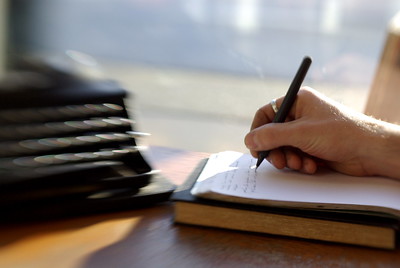 When you’re attempting to write a novel, an involved short story or a non-fiction book, you need some way to organize your ideas. None of us write very effectively by starting with the opening sentence of page one and proceeding in a perfectly linear fashion.
When you’re attempting to write a novel, an involved short story or a non-fiction book, you need some way to organize your ideas. None of us write very effectively by starting with the opening sentence of page one and proceeding in a perfectly linear fashion.
As with any creative process there’s no one “right” way to keep these thoughts organized, but rather a wide variety of techniques favored by different writers.
One low-tech solution is to fill up paper notebooks with scrawled notes. On the other side, the digital age has brought a host of sophisticated programs and software suites that claim to radically improve your workflow.
Tips and Strategies for Organizing Your Writing Ideas
One effective technique is to designate and maintain a single place to keep your notes so that when inspiration strikes you don’t have to waste time hunting around or thinking about where to write it. It’s ideal to find a solution that syncs to multiple devices, such as note taking with Evernote or Google Drive, which is much more useful than static documents on a computer. (It also makes it less likely to misplace your notes.)
Make sure you have some way to capture thoughts that come to you at unexpected times, which is often when we get our best ideas. I personally carry around a pencil and small scrap of paper for on-the-go but transcribe those notes into Evernote later.
I’ve found that I still prefer handwriting on the go and this also helps me process those ideas more deeply and make connections I might not have thought of at first. You could also scan handwritten pages and several notetaking services make this an easy process.
It’s also good to have a go-to way to record audio while you are out and about. I personally use Evernote’s record audio note on my phone.
Some writers opt to use a whiteboard, which gives you a large amount of space to add in ideas, easily reorder and connect them, and erase what you don’t need. You can jot everything down at the end or take a picture. Other writers, mainly in fiction, choose index cards, which can help with organizing and reordering scenes and plot points.
All in all, you can choose from plenty of options, but just make sure you have one go-to place to jot down a note both at your primary writing environment and during the day as you (ostensibly) do other things.
But What Notes to Take, Anyway?
In addition to finalizing your physical workflow for notetaking, it’s also important to have a plan for what actual methods you want to use to get your ideas down in a logical manner. This, of course, will vary greatly depending on the type of writing you are doing.
For non-fiction you will likely need to utilize a good outline to organize your argument and the basic flow of your piece, as well as a way to manage your research and citations.
For fiction you can also write a traditional outline for your story, or experiment with other methods such as mind mapping your characters and plot points. There are also other more advanced techniques that some writers swear by, such as the snowflake method and premium software such as Scrivener.
What do you like to do to take notes and capture story ideas?



Hi Andrew, it was good meeting you at the WP CAMP @ DAYTON Today. Lets keep in touch. Your website looks good, don’t let the Imposter Syndrome steal you of all you can do! Lets meet up sometime soon.